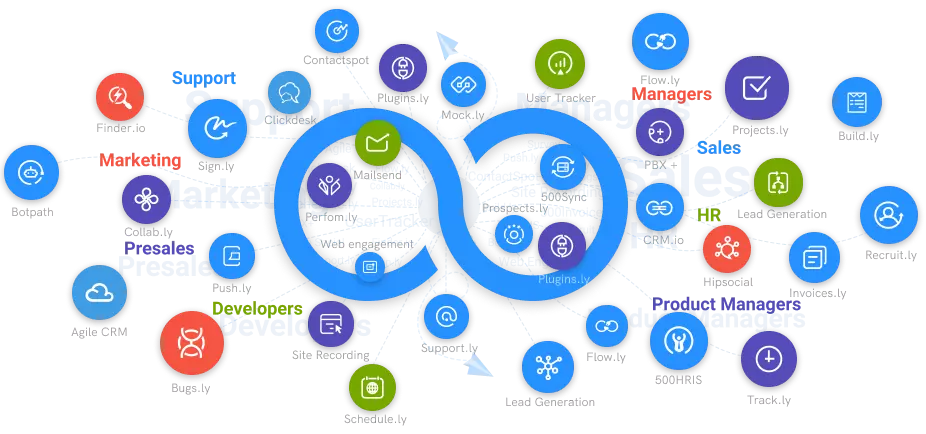Definition of an API Platform
An Application Programming Interface (API) is a seamless link that enables firms to automate business operations and improve data sharing and integration across several apps and systems. An app like Tripadvisor, for example, gathers data from multiple airlines and hotels using their APIs. Another example is the synchronization of leads between marketing automation systems and your CRM so that the Sales team may work on them.
#1
Minimal Coding
#2
Lower Maintenance Cost
#3
Automated Software
#4
Advanced Security
#5
Multi - APIs Connectivity
#6
Data Privacy
#7
Performance Tracking & Monitoring Tool
#8
Centralized Logging System
#9
Unbelievable pricing - the lowest you will ever find
#10
Everything your business needs - 50 apps, 24/5 support and 99.95% uptime
Evolution of API Platform
Here is how API platforms have evolved through the years.
Remote Procedure Call
In 1981, a remote procedure call (RPC) was introduced. It was presented as a procedure that would execute in another machine on a shared network as if it were a local procedure call, without the developer explicitly writing the code for the distant interaction.
When a remote procedure is initiated, the calling environment is paused, the parameters are sent across the network to the environment where the procedure is to be executed, and the requested procedure is run there.
Common Object Request Brokers (CORBA)
CORBA was introduced in 1991 as a standard for remotely calling operations on dispersed objects over networks. CORBA's advantages include OS and language independence, freedom from technology-linked implementations, a high level of tunability, robust data-typing, and freedom from the mechanics of distributed data transfers.
However, due to politics and commerce, the sacrifices made by numerous competing developers in creating a unified standard led to its failure.
Object Access Protocol (SOAP)
SOAP is a communications protocol standard used in the deployment of web services. SOAP provides a messaging structure that is intended to transport application payload in one area of the envelope and control information in another. SOAP allows developers to use Extensible Markup Language to authenticate, authorize, and interact with processes running on multiple operating systems (XML).
Transfer of Representational State (REST)
REST was established to assist the creation and development of the World Wide api gateway (API Gateway) architecture. It is a widely acknowledged set of rules for developing dependable online APIs. REST employs a resource identifier to identify the specific resource involved in any interaction. Furthermore, through a REST API, clients may also alter objects on the server and even contribute new items to it.
GraphQL
Facebook created GraphQL in 2012 for internal projects before making it public in 2015. GraphQL is a contemporary alternative to REST-based architecture. It is defined as a query language and API protocol that is open source.
A GraphQL query is a string that is submitted to a server, which interprets and fulfills it before returning JSON to the client. GraphQL runtimes are developed in a variety of programming languages, including Go, Ruby, Scala, Java,.Net, and Python.





